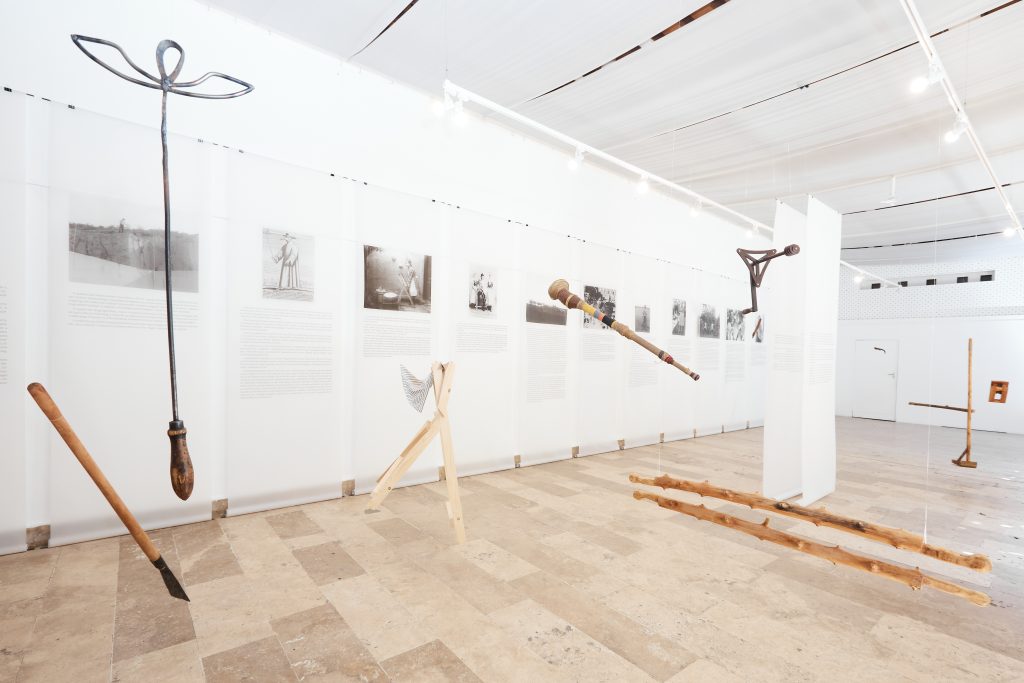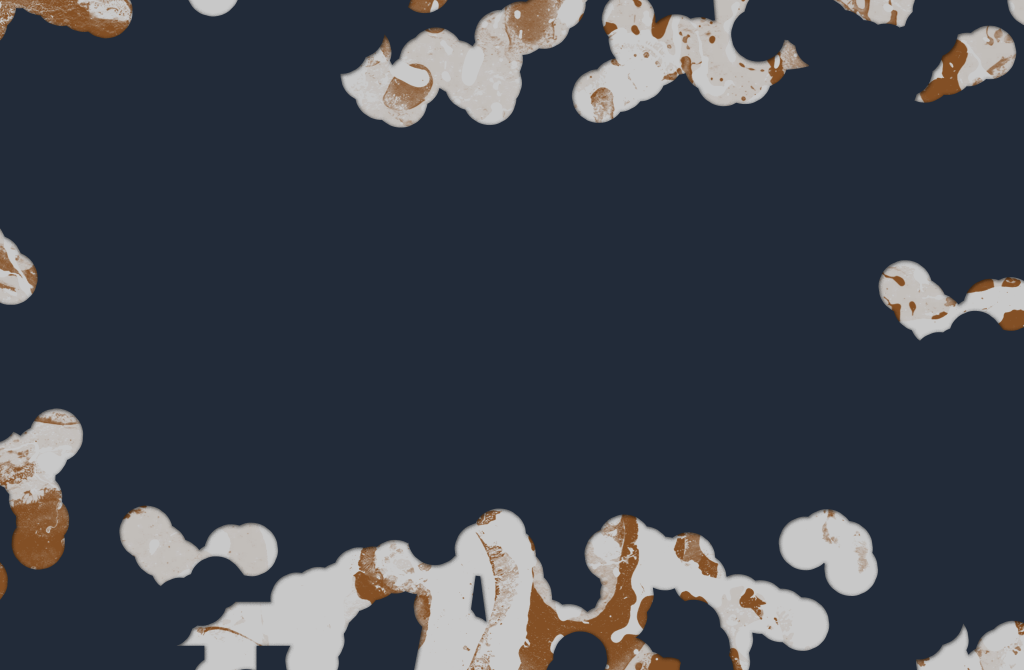Workshops and curatorial tour at the International Architecture Schools Exhibition “Handful”
The exhibition of architecture schools “Handful” examines manual work and material wisdom as necessary tools in the skill set of a modern architect, and how manual education affects the creation of space.
6 authors and collectives have been selected to participate in the exhibition, and they will present their works on the curator’s tour. Three of them lead workshops where everyone can learn exciting manual techniques.
Hemp-it-yourself
In the workshop we look how hemp concrete which is one of the most climate-friendly material can be used and how to mix the material and tamp it in the form. Local raw materials are used – hemp bones and slaked lime – and fabric forms to make furniture or sculptures.
Hannah Segenkranz, author of the Hemp-it-yourself exhibit, will guide the workshop. His material and design research works are environmentally aware, sensitive and contextual, important keywords are agency, democratic design and traditional manual techniques.
Chidder-Puller
The Chidder-puller: Creating a myth:
“An imaginary tool that could have existed.
And a fictional story that could have been true.”
Architects, designers and other citizens come into contact with the making of things and the tools used to make things more and more through digital and mechanical intermediaries. In addition to the loss of manual skills, one can also notice a psychological distancing from manual processes, which have played an important role in the development of both man and society.
The workshop, conducted by the faculty and students of the Maholy-Nagy University of Art and Design, is a playful thought journey, starting with the Chidder-Puller, a fictitious tool. The aim is to sketch a fictional tool, to imagine its history, identity and tradition, to place the tool historically and geographically and to make its prototype.
The workshop will be conducted by Neville Zoltán, Dobos Bence, Pozsár Péter, Balogh Enikő, Czigány Lilla, Füleky Dorottya, Gárdos Lili, Halmos Anita, Lajcsik Dorka, Lipótzky Kristóf, Monti Elvira, Répás Janka, Soóki-Tóth Anna, Szelevényi Oszkár, Tóth Zsombor, Véghelyi Borbála, Veres Dóra, Wallner Gábor, Werk Zsuzsanna.
Woman Cave
Under the leadership of Woman Cave, you can participate in a performative knitting guild where hybrid clothing and furniture items are created. Relying on traditional craft techniques related to women and homemaking, new, inclusive and empowering, craft-based production methods and relationships are imagined. The purpose of objects woven and crocheted from coarse yarn is quick and easy place-making and self-expression in public space.
Woman Cave is a Paris-based transdisciplinary collective founded by architect and artist Chloé Macary-Carney and artist and anthropologist Léticia Chanliau. The central themes of their research are gender identity and complicity in spatial creation. In addition to organizing thematic workshops, they publish an annual Woman Journal.
Exhibition participants:
Hardware Stories
Alicia Lazzaroni and Antonio Bernacchi (Animali Domestici), Jakob Sieder-Semlitsch, and Lynn Hyun Kieffer (Denmark)
Baumimhaus (transl. Tree within the house)
Semjon Fehr (Switzerland)
Woman Cave
Léticia Chanliau, Chloé Macary-Carney (France)
Hemp-it-yourself
Hannah Segerkrantz (Estonia)
Design for Disassembly: Manual Techniques for Demountable Architecture
Project Team: Dillon Pranger, Marlee Barnes, Molly (Meng) Ma, Maxwell Rodencal
Students: Samita Asadathorn, Sophia Bachas-Daunert, Marlee Barnes, Samuel Castaneda, Qiyao (Melo) Chen, Sarah Chiesa, Muskaan Chugh, Sebastian Contreras, Madeline Esquivel, Valentina Haro, Haochen He, Lily Jantarachota, Jun Oh Koo, Hazel Lam, Haoyang (Raphael) Li, Allan Mezhibovsky, Ann Pakhayev, Daniel Sohayegh, Yan Sotolongo, Eva Stanford, Hymn Yiu
(USA)
Chidder-Puller
Coordinator: Neville Zoltán
Tutors: Dobos Bence, Pozsár Péter
Participants: Balogh Enikő, Czigány Lilla, Füleky Dorottya, Gárdos Lili, Halmos Anita, Lajcsik Dorka, Lipótzky Kristóf, Monti Elvira, Répás Janka, Soóki-Tóth Anna, Szelevényi Oszkár, Tóth Zsombor, Véghelyi Borbála, Veres Dóra, Wallner Gábor, Werk Zsuzsanna (Hungary)
This exhibition and workshops are supported by the French Institute.

